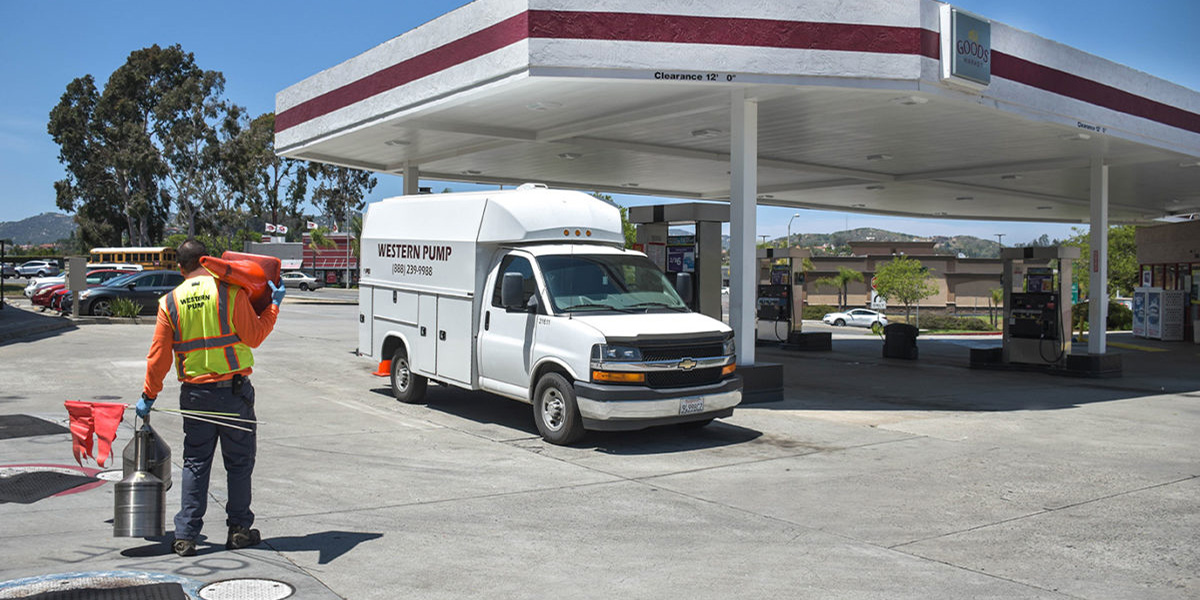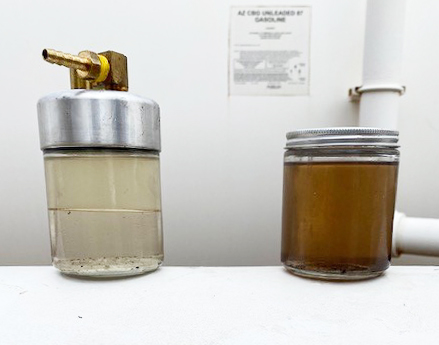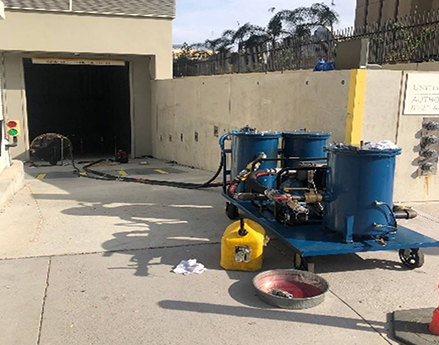


The hidden problem that could be hurting your business – dirty fuel.
Our fuel system service experts have prepared this fuel system cleaning FAQ to help you learn more about this hidden problem and ways to correct it.
How do fuel systems accumulate contaminants over time?
All fuel tank systems are vented to allow for filling and dispensing. Venting enables oxygen, water, dirt, and other contaminants to enter the fuel system. Diesel fuel is particularly prone to contamination due to its high viscosity.
Why is dirty fuel bad for business?
Contaminated fuel hurts engine performance, reduces fuel efficiency, and damages vital engine parts. This results in lower vehicle productivity, higher maintenance costs, and shorter engine life. Improper maintenance of your fuel and fuel system can also void engine warranties leading to unnecessary repair expenses.
What services are available to clean and maintain fuel quality?
There are many fuel system service contractors that provide fuel and fuel system cleaning services. These contractors offer a wide range of services. It is important to make sure your contractor can service your types of engine and equipment fuels, including diesel, gasoline, E10, heating, oil, and biodiesel. An effective fuel quality maintenance program should include the following services:
Fuel Sampling and Testing
- The first and most important step in the fuel quality maintenance service is sampling and testing your fuel supply. This will determine whether fuel and tank cleaning are necessary and allow for the development of a custom system cleaning plan tailored to your situation and business requirements. Sampling and testing establish a benchmark against which you can measure service effectiveness.
Tank Cleaning
- The fuel cleaning process begins with your tank. The first step is to remove accumulated waste byproducts that have collected at the bottom of your storage tank, ensuring that once the fuel is cleaned, it stays that way if possible.
Fuel Treatment
- After the tank has been cleaned, the fuel should be treated with a fuel additive to maximize the amount of time your fuel system remains clean, while improving the performance of the engines that are fueled by the system.
Ongoing Sampling, Testing, and Documentation
- Your organization cannot afford equipment failures and vehicle downtime. Proactive monitoring and maintenance of your fuel and fuel system is an important way to keep your engines running and minimize repair costs. Your service provider should offer routine follow-up sampling and testing to ensure your fuel and fuel system are always in tip-top condition. They should also provide documentation of the forensic data from the testing to keep your company compliant with all your engine warranty requirements.
How often should fuel be sampled and tested?
Depending on the type of fuel, tank system, and fuel usage, sampling is recommended at least every twelve months and, in some situations, up to every six months. Your fuel system cleaning service provider can work with you to develop a preventative maintenance strategy that will ensure that the quality of fuel being dispensed is clean when entering the equipment.
If I use fuel tank cleaners and additives, do I still need to clean my tanks?
Yes, you do. Some additives will enhance the cleaning process by dropping out particulates, free water, and microbes to the bottom of the tank, making cleaning more efficient. But these additives will not remove contaminants from the fuel or the tank.
About Western Pump and Our Fuel System Cleaning Services
Western Pump is a full-service contractor for the petroleum and automotive equipment industries. We offer a one-stop solution for specialty construction, equipment sales, installation, and service. One of the most important services we offer to our customers is a comprehensive fuel quality maintenance service. This service includes fuel sampling and testing, fuel and tank cleaning, preventative maintenance, and ongoing documentation. Click here to learn more about our fuel system cleaning services.